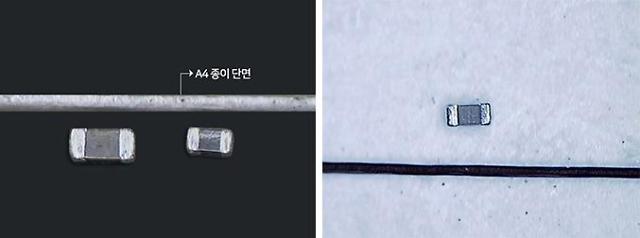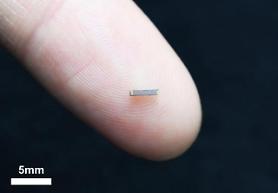
[Courtesy of Samsung Electro-Mechanics]
SEOUL -- Samsung Electro-Mechanics, an electronic component maker in South Korea, has developed an ultra-small, high-capacity multilayer ceramic capacitor that can be applied to various high-performance IT devices.
A multilayer ceramic capacitor (MLCC) works as a dam that temporarily charges and discharges electricity. It controls the stable flow of current within electric product circuits and is necessary for related products, including smartphones, home appliance products, and automobiles. The importance of thin and high-capacity MLCCs is growing in the 5G era.
With the implementation of various 5G functions, ultra-small MLCCs capable of withstanding high capacity and voltage are essential. Samsung Electro-Mechanics said it has developed the world’s first "0402" size (0.4mm in length and 0.2mm in width) MLCC with 1.0 microfarad (uF) capacity and 6.3 voltage.
By using differentiate technology, Samsung Electro-Mechanics said that it has maintained 1.0uF high-capacity characteristics while increasing the rated voltage by 1.5 times from 4.0V to 6.3V. The company enhanced the stability of its product life and operation to leading standards in the industry in terms of DC BIAS characteristics that reduce product volume when DC voltage is applied.
"This product is the first within the industry to realize miniaturization, highest capacity, and high internal voltage," Samsung Electro-Mechanics components business head Kim Doo-young said in a statement on April 15. The company secured nano-particulate powder processing technology to realize ultra-thin dielectric and implemented a semiconductor process analysis method to improve credibility.
"We will be able to preemptively respond to the dramatically increasing demand for ultra-small, high-performance, high-reliability MLCC from the increase in demand for electronic devices and electrification of automobiles as a result of the commercialization of 5G telecommunication and digitalization," Kim said.
Copyright ⓒ Aju Press All rights reserved.



